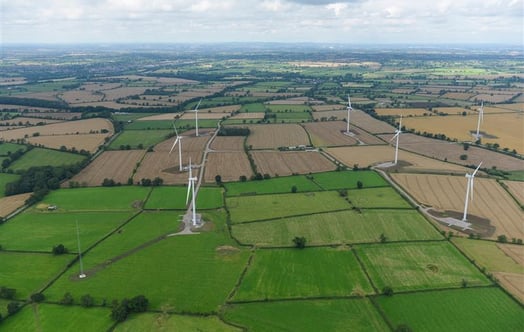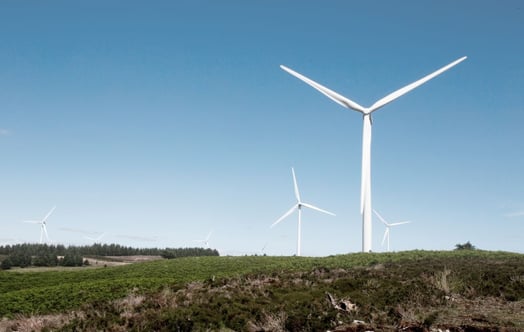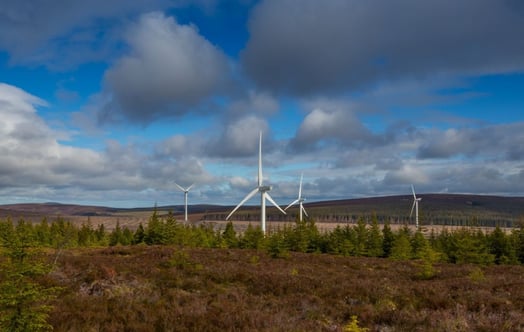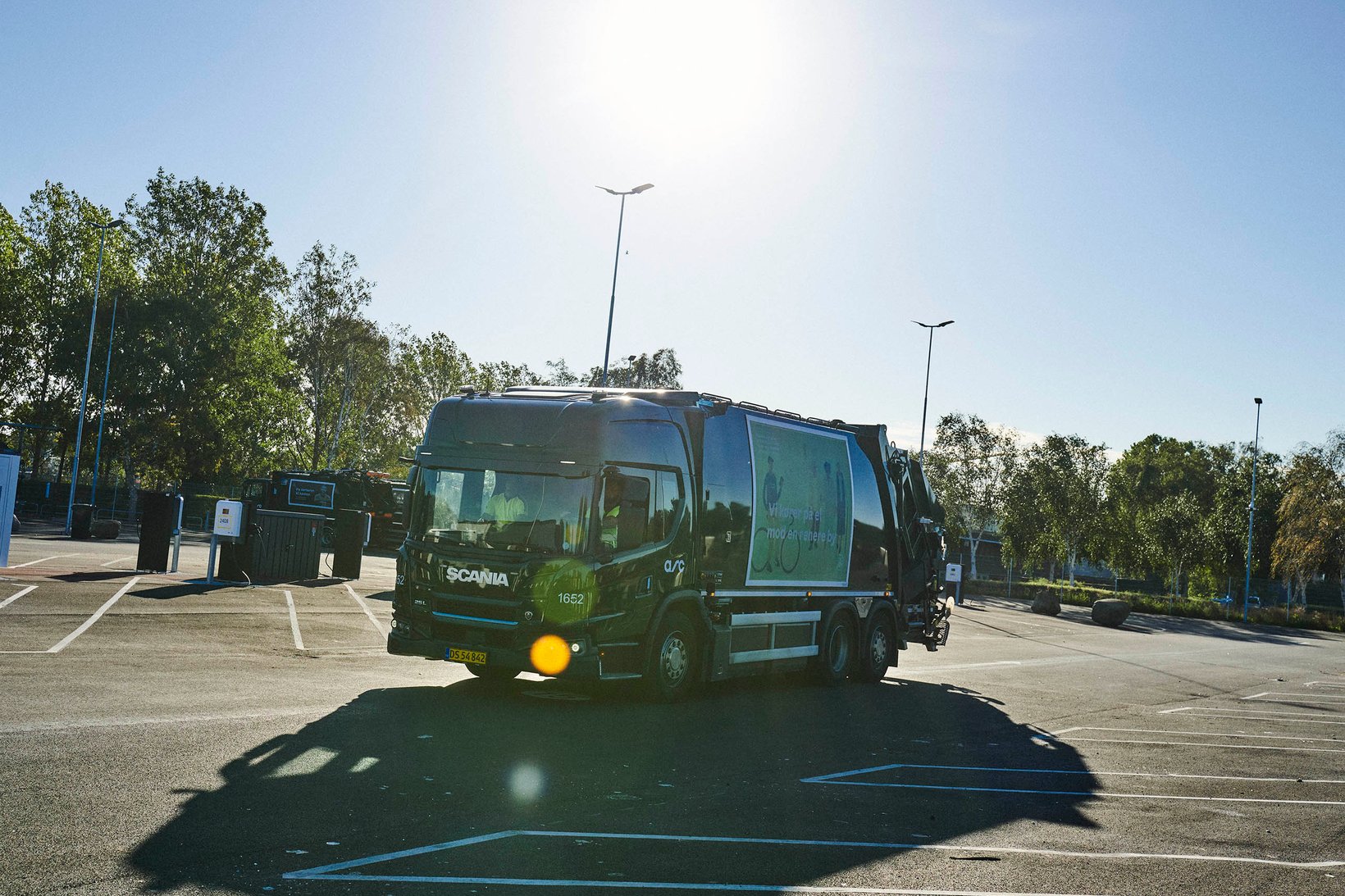
Silent revolution as Copenhagen’s rubbish trucks go electric
In Copenhagen, rubbish trucks have been switched to electric. The switch is primarily intended to reduce emissions, but for the residents of the Danish capital, and for refuse collectors, electric trucks bring a much-improved working environment.
The sound of a refuse truck reversing. The rattling of rubbish bin lids being thrown open. The noise of the engine revving when the rubbish bins are being lifted and emptied into the trucks. Rubbish scraping and groaning as it is compressed. The acceleration of a truck moving on to the next house.
Noisy rubbish trucks are an intrinsic and accepted part of the urban soundscape. The rumble of refuse trucks’ diesel engines and hydraulics are part and parcel of daily life. But when refuse collection suddenly becomes exceptionally quiet, the soundscape is so unusual that members of the public wonder what has happened.

Electric drive has really improved the work environment for Kazius Svendsen. Photo: Karen Rosetzsky
The sound of the city has changed
The switch to electric trucks has been made over the past year or so. Municipal waste company Amager Resource Center (ARC) has been using Scania electric refuse trucks for some time, and the switch from fossil fuels to electric has fundamentally changed the urban soundscape.
“In the past, you could hear our trucks everywhere when we drove on narrow streets, now you hardly notice us,” says Ole Elkjær, Daily Operations Manager at ARC.
“If anything, we’re probably almost too quiet now. When our drivers stop at red lights, sometimes cyclists and pedestrians are shocked when our large trucks move off almost entirely silently.”
The trucks have been developed in a collaboration between ARC and Scania that included simulations to assess how the trucks would behave on the road. A lot of work has also been put into maximising the capacity of the batteries. At the same time, having batteries too large risks taking up too much space on the new vehicles.
In addition to reduced noise, the 86 refuse trucks that Scania delivered to ARC just over a year ago, have also had a positive impact on emissions.
“Copenhagen has the ambition to be carbon dioxide-neutral and this is one of the initiatives it has taken to get there,” says Anton Freiesleben, Sales Director, Scania. “If you charge the trucks with green energy, you can say that they are completely climate neutral, because driving them is entirely emissions-free.”

The sound of silence: Julian Bengtsen and Kazius Svendsen enjoys the quiet buzzing of their electric rubbish truck. Photo: Karen Rosetzsky
Electric is leading the way
It is the number of trucks that makes this project special. Freiesleben praises ARC’s bold decision to replace a large part of the truck fleet more or less at once. Where waste management in Denmark was previously looking towards developments in Norway and Sweden and was to a large extent relying on biogas-powered refuse trucks, electrification is now leading the way.
“We’ve had visits from a large number of different cities and countries who want to understand how we, ARC and Copenhagen municipality have taken this step. It has become an excellent way for Denmark and Copenhagen to show that we are at the forefront. As far as I know, there is no other city in the world that has implemented such a change this widely and comprehensively,” Freiesleben says.
In addition to reduced noise for residents, the switch to electric has of course also meant a lot to those who work in and on the trucks. Elkjær says drivers’ working environment has improved enormously thanks to the quieter operations. The powerful engines, the capacity of which Scania had to limit to avoid unnecessary wear and tear on the tyres, makes driving a pleasure.
“The drivers love these trucks because they’re so smooth to drive,” says Freiesleben. “Even if you compare with the smoothest, most easy-to-use diesel refuse truck, the diesel truck feels old-fashioned in comparison to the electric truck. Electric trucks have a completely different level of modernity. But the biggest difference, even for the drivers, is the lower noise levels.”
Elkjær adds:
“When our drivers started using the new trucks, they soon noticed that noise levels inside the trucks had decreased significantly. I’ve worked in this industry for more than 10 years, and I’ve never experienced the quiet you get in these cabs. The other day, a driver told me: ‘Now I can hear my radio!’”
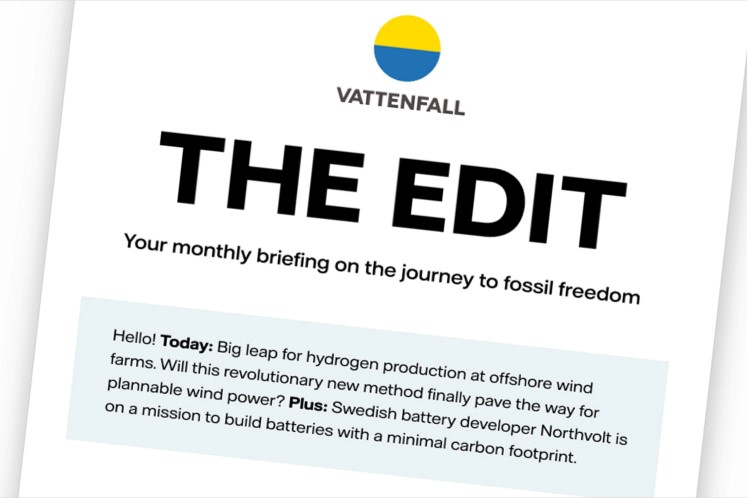
Subscribe to the newsletter THE EDIT
THE EDIT is Vattenfall's new monthly newsletter. Each issue highlights a new burning issue from the world of sustainable energy and fossil freedom.

